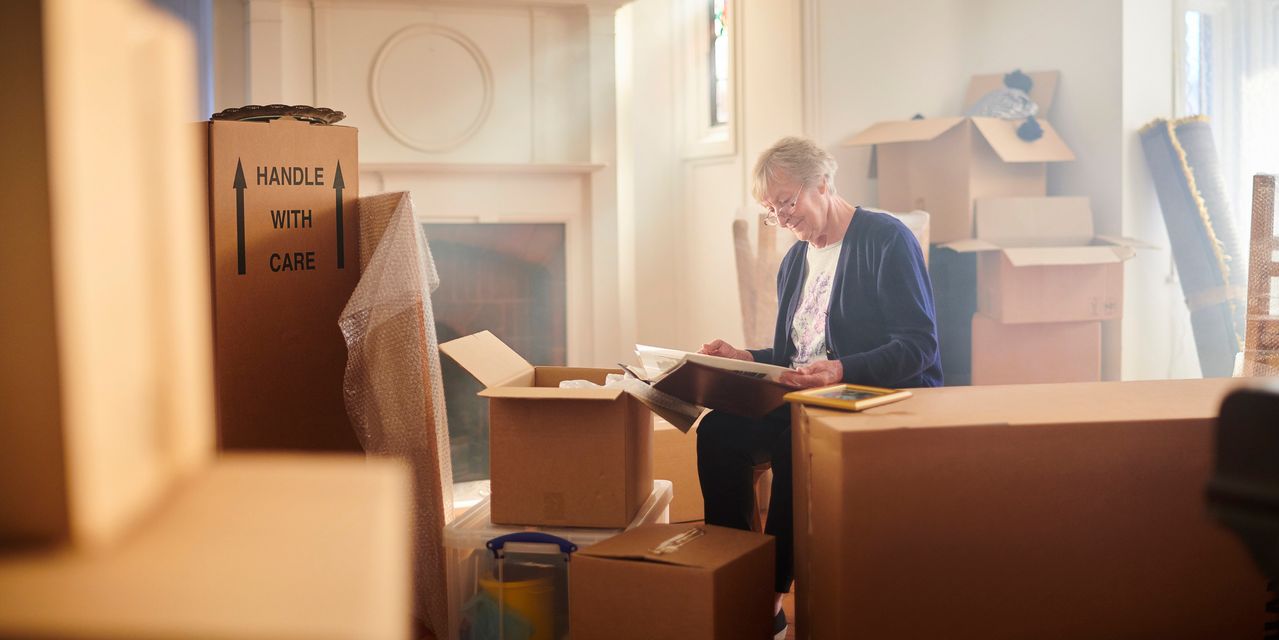
At any age, moving causes stress. For retirees, relocating to a new home is often emotionally and physically wrenching.
In addition to the standard irritants of dealing with movers and disrupting your routine, the prospect of moving into an entirely new environment (such as an independent living community) creates its own set of challenges.
Check out MarketWatch’s ‘Where Should I Retire?’ tool
The good news: Taking smart steps before and after the move can help you cope.
As you prepare to move, use an online checklist to organize your efforts. Little things—like completing change of address requests and gathering all your legal documents in a folder—will ease the transition.
In the weeks and months before your scheduled move date, go through your stuff. Treat this as an opportunity to declutter your life and free yourself from hindrances (you never liked that exercise bike anyway!).
The earlier you begin to sift through the contents of your home, the better.
“Don’t wait to do things in haste,” said Mary Kay Buysse, executive director of the National Association of Senior & Specialty Move Managers, a membership organization of senior move managers based in Hinsdale, Ill. “Start in an area that doesn’t have a lot of emotional attachment, like the bathroom or garage.”
She warns that a big danger for seniors is their reluctance to let go of their contents, especially when relocating to a smaller space. Unwilling to part with belongings (through, say, a yard sale or giving items to family, friends and charities), they may pay for a storage unit.
“It becomes a way to delay decision-making,” Buysse said. “But most storage units are never visited. As the years go by, you’ve paid thousands of dollars of fees and you’ve bought yourself another problem” because the stuff remains a looming burden.
It’s easy to overlook the physical toll of going through your contents. Play it safe by setting aside a few hours at a time so that you’re able to make decisions with alacrity.
“It can be daunting at 72 to go through a longtime family home,” Buysse said. “It takes a lot of stamina.”
This explains why senior move managers are a growth industry. They usually charge an hourly fee to help you distribute or sell items that will not accompany you to your new digs. They may also hire a mover on your behalf and deal with the moving company.
“Once you’re in the new place, they’ll unpack boxes, do all the TV hookups, even hang curtains,” Buysse said. “They don’t leave until everything’s done.”
Disorientation can set in as you acclimate to your new surroundings. Brace for the strangeness of those first few days.
Here’s a tip: Identify an aspect of your former home that brings you comfort or peace of mind such as a favorite reading nook. Then try to replicate it in your new place.
“Use your smartphone to take a video of the home you’re leaving,” said Heather Asang, director of business development at FindContinuingCare.com. “Focus on where you spend much of your time, and set up a similar space so that you incorporate the things you love about the home you’re leaving in your new home.”
If you’re alone or simply exhausted from the move, it’s tempting to retreat into a shell. Instead, force yourself to socialize more actively with your neighbors.
“It can feel lonely at first,” Asang said. “You can feel bare because you’ve left everything you know, so keep busy. Keep good communication with your new community.” If a volunteer resident offers to take you around and introduce you to people, say yes.
Above all, maintain a positive attitude. Beware of making snap judgments that fuel negativity.
If the tape loop in your head repeatedly sends messages such as, “Nobody will visit me” or “I’m not a joiner so I won’t like the group activities here,” you’ll only make it harder on yourself.
“Stick it out a couple of weeks,” Asang said. “You’ll feel so much better once you meet more people and they start to know you by name.”










Add Comment